FAO contributes to the achievement of the 2030 Agenda and Sustainable Development Goals (SDGs) through its global mandate and goals and though it Strategic Framework by supporting the transformation to more efficient, inclusive, resilient and sustainable agri-food systems.
The Inclusive Rural Transformation and Gender Equality Division (ESP) coordinates FAO’s work on social protection, gender equality, decent rural employment, rural institutions and people’s empowerment, and the right to food. It is responsible for working with member countries and other partners to reduce rural poverty through strengthening social protection systems, diversifying rural employment opportunities, reducing gender gaps and other social inequalities in agriculture, strengthening producer organizations, improving the rural poor’s access to productive resources and rural services, and achieving the overall goal of realizing the human right to adequate food for all.
The Social Protection (SOCPRO) team is part of the ESP Division. The SOCPRO team provides overall guidance on FAO’s approach to social protection, and technical support to decentralized offices in five core areas: (i) ensuring the expansion of coverage of social protection to rural areas; (ii) promoting policy and programmatic synergies between social protection, economic inclusion and climate change; (iii) promoting nutrition sensitive social protection systems; and (iv) social protection and resilience.
Reporting Lines
Under the general guidance of the Social Protection team leader, the consultant reports to the lead of thematic area on Climate Change and Economic Inclusion.
Technical Focus
The Intergovernmental Panel on Climate Change (IPCC) Assessment Report 6 highlights the importance of inclusivity for fostering sustainable climate resilient development. Small-scale producers contribute the least to climate change but are the most at risk of welfare losses due to increasing global temperatures and extreme weather events. They are also the ones who have the least resources and capacity to adapt to climate change. Women and youth face additional challenges due to structural barriers that further limit their access to resources, services, markets, technologies and institutional support. Well targeted and adequate funding is required to address the unequal impacts of climate change on poor and vulnerable rural populations, and to support an inclusive and gender-responsive development pathway in a world of increasing climate uncertainty and inequalities.
Despite their key role in agri-food systems, small-scale farmers receive only 1.7 percent of global climate financing (IFAD 2020). Current adaptation financial flows are insufficient to meet the growing needs of the agriculture sector and of the most vulnerable people living in rural areas (UNEP 2022 ). In addition, most funding targets climate mitigation rather than adaptation efforts. Towards that end, in 2019, nine Multilateral Development Banks announced a collective commitment to double their total levels of adaptation finances by 2025 to USD 18 billion annually. The World Bank announced a 35percent climate finance target out of the total finance from 2021-2025, of which at least 50percent will support climate adaptation.
The incumbent is expected to contribute to informing the design of social protection interventions within investment programmes for climate resilience and mitigation to advocate for the mainstreaming of social protection in global funding mechanisms and national climate actions. In addition, the incumbent will support the SOCPRO’s team partnership building efforts to strengthen FAO’s engagement and impacts in this agenda.
Under the overall technical supervision of SOCPRO’s Team Leader, and under the coordination of the Lead of the Thematic Area on Social protection, economic inclusion and climate change, the incumbent will:
• Document good practices and lessons learned in including social protection within investment programmes for climate resilience and mitigation (e.g. the Global Environment Facility (GEF) Trust Fund, the Least Developed Countries Fund (LDCF), the Special Climate Change Fund (SCCF), the Adaptation Fund (AF) and the Green Climate Fund (GCF)
• Technically review an analysis of international and national climate finance flows to social protection
• Develop a guidance note to inform the different options for including social protection within investment programmes for climate resilience and mitigation
• Contribute to developing investment plans and other proposals on climate finance and social protection in partnership with county office colleagues.
• Perform other relevant research duties under the guidance of the thematic leader and the Social Protection Team Leader
• University degree in social policy, international development, sustainable development, climate change, development economics or related subjects.
• At least 12 years (for COF) or 15 years (for PSA) of professional experience for Level A, and five years for Level B in designing investment plans and/or programmes for poverty reduction and/or climate change adaptation programmes, strengthening national social protection systems.
• Working knowledge (level C) of English and limited knowledge (level B) of one of the other official languages of the organization (Arabic, Chinese, French, Spanish or Russian). For PSA, working knowledge of English.
FAO Core Competencies
• Results Focus
• Teamwork
• Communication
• Building Effective Relationships
• Knowledge Sharing and Continuous Improvement
Technical/Functional Skills
• Knowledge in areas of FAO’s mandate, in particular social protection;
• Knowledge in climate change adaptation programmes and policies, in particular climate finance;
• Strong writing, communication and presentation skills;
• Strong organizational skills and ability to deliver outputs by agreed deadlines;
• Ability to establish effective working relations with persons of different national and cultural backgrounds
• Excellent writing skills



